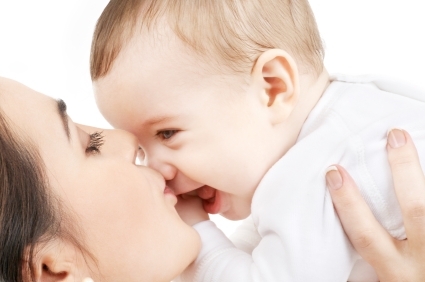How Breastfeeding May Lower Breast Cancer Risk
|
Reading time: 4 minutes
|

Key Takeaways
- Breastfeeding helps babies grow and may also lower the risk of breast cancer in mothers, especially before menopause.
- When breastfeeding isn’t possible, using approved medications to stop milk production can still support a woman’s long-term health.
- Feeding choices can protect both the baby and the mother. Whether through breastfeeding or with the help of Women’s Health medications, mothers can find options that fit their health needs and daily routines.
Breastfeeding is often known for helping babies grow strong and stay healthy. It gives them important nutrients and helps protect their bodies from sickness, especially in the first few months of life.
But new research shows that breastfeeding also supports the health of mothers. Studies have found that women who breastfeed may lower their risk of developing certain health problems later in life, including some types of cancer.
This information gives mothers more to think about when deciding how to feed their babies. Many women today balance work, family, and health needs. Knowing how breastfeeding connects to women’s long-term health can help them explore more options. Whether a woman chooses to breastfeed, use formula, or talk to a doctor about medical support, the decision can focus on both the baby’s needs and the mother’s well-being.
Breastfeeding and the Risk of Breast Cancer
Breast cancer is a common health concern for many women, especially those with a family history of the disease. Some women look for natural ways to lower their risk and protect their health over time.
Recent research shows that breastfeeding may help reduce the chance of getting breast cancer, especially before menopause. In one study, women who breastfed had a lower risk of developing the disease. The benefit was even stronger for women with a family history—some lowered their risk by almost half.
These findings show that breastfeeding supports the mother’s health, not just the baby’s. While many women choose to breastfeed to help their baby grow, it can also be part of caring for their well-being. For women who are thinking about their future health, this connection may be an important part of their decision.
Knowing how breastfeeding relates to breast cancer risk gives women more information to help them decide what works best for them and their families.
What If Breastfeeding Isn’t an Option?
Breastfeeding doesn’t work for everyone. Some women have health concerns, busy work schedules, or personal reasons that make it hard to breastfeed. These situations are common, and many mothers look for other ways to care for their babies and protect their own health.
Research shows that women who take medication to stop breast milk production may still get some health benefits. In one study, women who used this kind of medicine lowered their risk of breast cancer by about 42%. This is similar to the protection seen in women who breastfed.
These findings suggest that even when breastfeeding isn’t possible, other choices can still support a woman’s long-term health. For some, using Women’s Health medications can help the body recover after birth and lower future health risks.
Learning about different options gives mothers more ways to make decisions that match their needs—especially when breastfeeding is not the right fit for their situation.
Making a Personal Health Choice
Feeding a baby is a personal choice. Some mothers choose to breastfeed. Others may use a formula or find a different method that works better for their family. These choices depend on many things, like daily routines, comfort, health conditions, and support at home or work.
For women with a family history of breast cancer, this choice may also affect their long-term health. Studies show that both breastfeeding and taking medication to stop milk production may lower the risk of breast cancer. This means that feeding choices can support the mother’s health as well as the baby’s.
Whether a mother decides to breastfeed or use medical help, learning about different options is helpful. Talking to a doctor or nurse can give guidance and support. Women’s Health medications may also be part of the plan, especially for mothers who want extra support for their health after giving birth.
Understanding how these decisions affect the body can help mothers find a plan that feels right for both themselves and their baby.
Conclusion
Breastfeeding is a well-known way to give babies a strong start, but it also supports the mother’s health. Studies show that women who breastfeed may lower their risk of getting breast cancer, especially before menopause.
For women with a family history of breast cancer, this connection matters even more. Research shows that both breastfeeding and taking approved medications to stop milk production may help lower the risk of illness later on. Each option supports the body differently.
When breastfeeding isn’t possible, there are still ways to protect health after birth. Some women use Women’s Health medications to help their bodies recover and reduce health risks. These choices give mothers more ways to take care of themselves while also caring for their babies.
By learning how feeding decisions affect long-term health, women can choose what works best for their lifestyles, health needs, and family goals.
Information provided on this website is for general purposes only. It is not intended to take the place of advice from your practitioner







